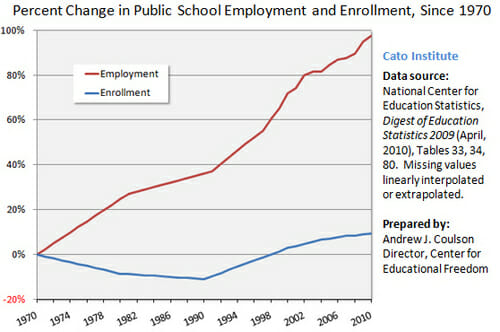I usually don't have much to say about Oprah. I guess my perception of her has always been vaguely negative -- she's given a big leg up to some junk science causes in the past, and some of her recent attempts at charity have seemed to be more about self-promotion than about really helping people (the car giveaway comes to mind). My real beef with her is probably more petty: She once inspired my wife, in that way only Oprah seems to be able to do with women, to organize her closets just like Oprah. What this meant in practice was that I had to go out and buy about 400 matching wooden hangers, and then we had to get rid of all the stuff on our shelves. Yes, you heard that right:
Wife: All that stuff cluttering up the shelves in our closet has to go
Me: Why? I mean, it's a closet. It's for storing stuff
W: It has to go somewhere else
M: There is no place else
W: Oprah's closet is beautiful - it has just clothes and nothing else in it. That's the way our closet should be
M: But we have no where else to store this stuff. Why should that shelf sit empty when we have a use for it?
W: Because it will look great
M: Who cares? It's a closet. Besides, are we really going to take home decorating advice from a woman who has enough money to build a dedicated closet for each pair of shoes she owns?
Anyway, guys out there, you probably know the drill.
But I must say my opinion is changing a bit. I was deprecating about her book club, because of some of the specific book choices, until I saw the stat that something like half the adults in this country never read a book again after they leave school. If Oprah can get women as fired up about reading as my wife is about having a zen closet, power to her.
And, I have to defend her in her current endeavor, where she is giving $40 million to start a school for girls in Africa. Good. I don't know if it will work, but it is worth a try. We know that giving direct aid into kleptocratic totalitarian African governments is worse than useless, so maybe education is an answer.
Amazingly, she is under fire for this program, as people across the political spectrum ask why she is giving this money to Africa when everything is not perfect in this country. This argument strikes me as more Lou Dobbs-type nationalistic xenophobia. Sure inner city schools in this country suck, but they are better than what is in Africa (nothing) and its not clear that money alone is going to fix government-run schools (besides, Bill Gates and Warren Buffet are already taking a swing at that). I personally would love to contribute to inner-city education, but until there is a framework such that someone other than the government controls the schools, I am not going to do it.
There is no reason why Africans are less deserving of charity than Americans, and several reasons why they may be more deserving. Recognize that most blacks in this country, even those in the inner-city, would be in the top quintile of wealth in Africa. So good for Oprah.
Update: Andrew Coulson of Cato argues that Oprah misdiagnoses the inner city education problem - its not the kids, its the schools. I would argue its both. School choice gives kids a chance to attend a better, more stimulating school. But it also acts as a sorting process, separating kids and parents who want a good education and getting them away from the cancer of kids that don't. I think Oprah (and Bill Cosby before her) correctly diagnoses that there is certainly a depressing number in the latter category. However, all that is peripheral. Oprah does not owe her charity to the US. Africa is a perfectly reasonable target for her charity (and why does Oprah catch crap for focusing on Africa when no one gives Bono similar grief?)


